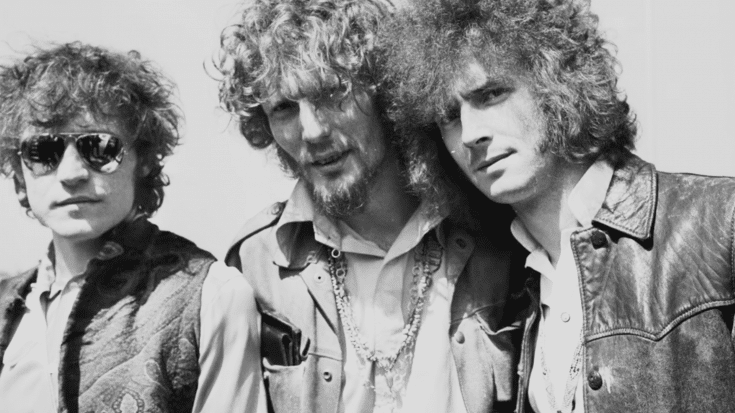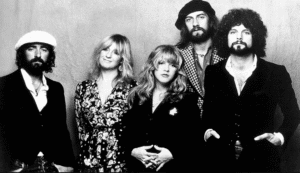6 Rock Bands That Should Have Never Broken Up

via WBM/Music / YouTube
There are bands that have transcended time and genre, becoming legends rather than simply a collection of musicians. However, even tales are not immune to the ravages of time and human nature. Here are 6 Rock Bands who Should Never Have Broken Up, groups who defined an era, inspired generations, and whose disbandment left a vacuum in the hearts of classic rock fans.
The Beatles
View this post on Instagram
The Beatles’ split was the culmination of a complex web of factors. The intense pressure of Beatlemania, the death of their manager Brian Epstein, and diverging artistic directions created an unsustainable environment. McCartney’s announcement in 1970 was the public acknowledgment of an internal fracture that had been widening for years, with financial disputes adding to the strain. Despite this, their legacy was cemented by a pristine discography that still captivates audiences worldwide.
John Lennon’s relationship with Yoko Ono and Paul McCartney’s desire to involve his in-laws in band management further strained relations. The band’s inability to agree on a new manager, coupled with the pressures of fame and artistic growth, led to their split.
Led Zeppelin
View this post on Instagram
Led Zeppelin’s disbandment was a decision rooted in respect for their late drummer, John Bonham. Prior to his untimely death, the band had already begun to show signs of fatigue, with Page and Bonham’s contributions diminishing during the creation of “In Through the Out Door”. The remaining members have reunited for sporadic performances, but the essence of Led Zeppelin as a full-time entity concluded with Bonham’s passing.
The death of drummer John Bonham in 1980 was the primary reason for Led Zeppelin’s disbandment. The band members felt they could not continue without him, as he was integral to their sound and live performances. The surviving members decided that replacing Bonham was not an option, and thus, Led Zeppelin concluded.
The Police
View this post on Instagram
The Police’s album “Synchronicity” was a product of tension and creative discord. Sting’s dominance in songwriting and the direction of the band led to resentment from Summers and Copeland. Despite these challenges, they managed to produce an album that solidified their status in the music world. Their reunion tour in 2007-08 offered a glimpse of reconciliation, but the trio’s future collaborations remain uncertain.
The Police’s breakup was attributed to inflated egos, creative differences, and personal conflicts. The recording of their final album, “Synchronicity,” was fraught with tension, leading to the band members recording their parts separately. After the Synchronicity tour, Sting decided to pursue a solo career, marking the end of the band’s run89.
The Band
View this post on Instagram
The Band’s farewell concert, “The Last Waltz,” was a grand finale that showcased their collective artistry. Internal conflicts, particularly between Robertson and Helm over songwriting credits and commitment, led to their separation. While some members continued to make music, the original lineup would never perform together again after that legendary night.
The Band’s breakup was influenced by substance abuse issues among its members and internal discord. Robbie Robertson decided to stop touring due to the detrimental effects it was having on the group. The farewell concert, “The Last Waltz,” was a celebration of their music, but also highlighted the underlying tensions that led to their breakup.
Cream
View this post on Instagram
Cream’s internal conflicts, especially between Bruce and Baker, were notorious and predated the band’s formation. Their musical chemistry was undeniable, but the personal animosities made their tenure as a group brief. Clapton’s departure from the band marked the end of an era for the power trio, whose influence on rock music remains indelible.
Cream’s breakup in 1968 was the result of creative differences, personal conflicts, and the constant competition to outplay each other led to an unsustainable working environment. Eric Clapton’s announcement of the breakup was a culmination of these ongoing issues.
The Traveling Wilburys
View this post on Instagram
The Traveling Wilburys, a veritable constellation of rock stars, came together almost by serendipity. George Harrison, needing a B-side for his single, gathered Bob Dylan, Roy Orbison, Tom Petty, and Jeff Lynne for an impromptu session that birthed “Handle With Care”. Recognizing the magic in their collaboration, they went on to produce two albums under pseudonyms, blending their distinct styles into a harmonious and timeless sound that transcended the individual success of its members.
The group never officially disbanded, but became inactive after 1991. The death of Roy Orbison in 1988 was a significant blow, and despite releasing a second album as a quartet, the band’s activity dwindled. George Harrison had envisioned more albums and even a film, but these plans never materialized.



















